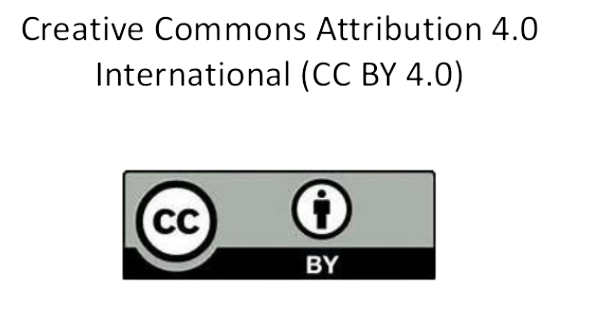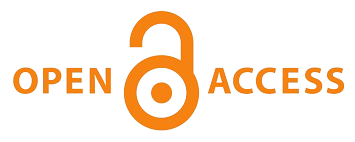Implementasi Model Problem Based Learning untuk Meningkatkan Hasil Belajar Siswa pada Materi Larangan Mengkonsumsi Minuman Keras
DOI:
https://doi.org/10.35719/jptpd.v2i1.115Keywords:
Hasil belajar Siswa, Larangan Mengkonsumsi Minuman Keras, Penelitian Tindakan Kelas, Problem Based Learning, PBL, Student Learning Outcomes, Prohibition of Alcohol Consumption, Classroom Action ResearchAbstract
Penelitian ini bertujuan untuk meningkatkan hasil belajar siswa pada materi larangan mengkonsumsi minuman keras melalui penerapan model Problem Based Learning (PBL). Latar belakang penelitian ini didasarkan pada rendahnya pemahaman siswa kelas XI SMK Madka Iqlima Purwakarta mengenai bahaya minuman keras dari aspek kesehatan, sosial, dan agama. Model PBL dipilih karena menekankan keterlibatan aktif siswa dalam pemecahan masalah nyata yang relevan dengan kehidupan mereka, sehingga diharapkan dapat meningkatkan pemahaman dan partisipasi siswa dalam pembelajaran. Penelitian ini menggunakan metode Penelitian Tindakan Kelas (PTK) dengan dua siklus yang melibatkan tahap perencanaan, pelaksanaan, observasi, dan refleksi. Subjek penelitian terdiri dari 25 siswa kelas XI. Data dikumpulkan melalui tes hasil belajar, lembar observasi, dan angket, yang dianalisis secara deskriptif untuk melihat peningkatan hasil belajar sebelum dan sesudah penerapan PBL. Hasil penelitian menunjukkan peningkatan nilai post-test dari 63,6 menjadi 78,4 pada siklus pertama, dan meningkat menjadi 83,6 pada siklus kedua, dengan ketuntasan belajar mencapai 80%. PBL juga meningkatkan partisipasi aktif, keterampilan berpikir kritis, dan kolaborasi siswa.
This study aims to improve student learning outcomes on the prohibition of alcohol consumption through the application of the Problem Based Learning (PBL) model. The background of this study is based on the low understanding of grade XI students of SMK Madka Iqlima Purwakarta regarding the dangers of liquor from health, social, and religious aspects. The PBL model was chosen because it emphasizes students' active involvement in solving real problems that are relevant to their lives, so it is expected to increase students' understanding and participation in learning. This research uses the Classroom Action Research (PTK) method with two cycles involving planning, implementation, observation, and reflection stages. The research subjects consisted of 25 grade 11 students. Data were collected through learning outcome tests, observation sheets, and questionnaires, which were analyzed descriptively to see the improvement of learning outcomes before and after the implementation of PBL. The results showed an increase in post-test scores from 63.6 to 78.4 in the first cycle, and increased to 83.6 in the second cycle, with learning completeness reaching 80%. PBL also promotes active participation, critical thinking skills, and student collaboration.
References
Dalisay, F., Pokhrel, P., Buente, W., & Kawabata, Y. (2022). Exposure to tobacco and betel nut content on social media, risk perceptions, and susceptibility to peer influence among early adolescents in Guam. Addictive Behaviors Reports, 15, 100405. https://doi.org/10.1016/j.abrep.2021.100405
Daly, M. (2022). Cross‐national and longitudinal evidence for a rapid decline in life satisfaction in adolescence. Journal of Adolescence, 94(3), 422-434. https://doi.org/10.1002/jad.12037
Dewi, F. F., Nasution, N. E. A., & Rizka, C. (2025). The effect of the make a match learning model assisted by picture card media on students' cognitive learning outcomes in the human respiratory system topic. Inornatus: Biology Education Journal, 5(1), 48-63. https://doi.org/10.30862/inornatus.v5i1.833
Dodd, S., Widnall, E., Russell, A. E., Curtin, E. L., Simmonds, R., Limmer, M., & Kidger, J. (2022). School-based peer education interventions to improve health: a global systematic review of effectiveness. BMC public health, 22(1), 2247. https://doi.org/10.1186/s12889-022-14688-3
Frobel, W., Grafe, N., Meigen, C., Vogel, M., Hiemisch, A., Kiess, W., & Poulain, T. (2022). Substance use in childhood and adolescence and its associations with quality of life and behavioral strengths and difficulties. BMC Public Health, 22(1), 275. https://doi.org/10.1186/s12889-022-12586-2
Gillies, R. M. (2023). Using cooperative learning to enhance students’ learning and engagement during inquiry-based science. Education Sciences, 13(12), 1242.
Gunawan, W., Farichah, S. D., & Halim, A. (2024). Peningkatan Hasil Belajar Siswa pada Materi Keragaman melalui Model Problem Based Learning di Kelas IV SDN Sawahkulon Purwakarta. Journal of Pedagogical and Teacher Professional Development, 1(1), 134–146. https://doi.org/10.35719/jptpd.v1i1.27
Kemmis, S., & McTaggart, R. (2014). The action research planner. Singapore: Springer. https://doi.org/10.1007/978-981-4560-67-2
Khalik, A., Royani, A., & Muafia, E. (2024). Peningkatan Pemahaman Rukun Iman melalui Model Pembelajaran Kooperatif Tipe Think Pair Share (TPS) pada Siswa Kelas V SDN 5 Tanjung Kamal Situbondo. Journal of Pedagogical and Teacher Professional Development, 1(1), 94–104. https://doi.org/10.35719/jptpd.v1i1.17
Kirom, A., Farihah, U., & Nisak, F. U. (2025). Penerapan Model Pembelajaran Cooperative Learning Tipe Jigsaw dalam Meningkatkan Hasil Belajar Peserta Didik pada Materi Sujud Syukur. Journal of Pedagogical and Teacher Professional Development, 1(2), 242–251. https://doi.org/10.35719/jptpd.v1i2.31
Klein, H. J., & McCarthy, S. M. (2022). Student wellness trends and interventions in medical education: a narrative review. Humanities and social sciences communications, 9(1). https://doi.org/10.1057/s41599-022-01105-8
Liu, Y., & Pásztor, A. (2022). Effects of problem-based learning instructional intervention on critical thinking in higher education: A meta-analysis. Thinking Skills and Creativity, 45, 101069. https://doi.org/10.1016/j.tsc.2022.101069
Mahmudah, S., Muhith, A., & Afandi, A. (2024). Penerapan Metode Demonstrasi untuk Meningkatkan Hasil Belajar pada Materi Sujud Tilawah Kelas VII di SMP Negeri 1 Banyuglugur Situbondo. Journal of Pedagogical and Teacher Professional Development, 1(1), 119–133. https://doi.org/10.35719/jptpd.v1i1.25
Mendo-Lázaro, S., León-del-Barco, B., Polo-del-Río, M. I., & López-Ramos, V. M. (2022). The impact of cooperative learning on university students’ academic goals. Frontiers in Psychology, 12, 787210. https://doi.org/10.3389/fpsyg.2021.787210
Mesas, A. E., Girotto, E., Rodrigues, R., Martínez-Vizcaíno, V., Jiménez-López, E., & López-Gil, J. F. (2024). Ultra-processed food consumption is associated with alcoholic beverage drinking, tobacco smoking, and illicit drug use in adolescents: a nationwide population-based study. International Journal of Mental Health and Addiction, 22(5), 3109-3132. https://doi.org/10.1007/s11469-023-01038-6
Nurfitriyani, R., Kholil , M., Hasyim, N., & Salam, M. W. (2025). Peningkatan Hasil Belajar Siswa pada Mata Pelajaran Pendidikan Agama Islam dan Budi Pekerti Menggunakan Model Pembelajaran Joyful Learning. Journal of Pedagogical and Teacher Professional Development, 1(2), 170–190. https://doi.org/10.35719/jptpd.v1i2.2
Rehman, N., Zhang, W., Mahmood, A., Fareed, M. Z., & Batool, S. (2023). Fostering twenty-first century skills among primary school students through math project-based learning. Humanities and Social Sciences Communications, 10(1), 1-12. https://doi.org/10.1057/s41599-023-01914-5
Scull, T. M., Dodson, C. V., Geller, J. G., Reeder, L. C., & Stump, K. N. (2022). A media literacy education approach to high school sexual health education: immediate effects of media aware on adolescents’ media, sexual health, and communication outcomes. Journal of Youth and Adolescence, 51(4), 708-723. https://doi.org/10.1007/s10964-021-01567-0
Sugiyono. (2015). Metode Penelitian Pendidikan: Pendekatan Kuantitatif, Kualitatif, dan R&D (hal. 120-140). Bandung: Alfabeta.
Suherman, E., Muis, A., & Holili, M. (2024). Penggunaan Aplikasi Quizizz untuk Meningkatkan Hasil Belajar Peserta Didik pada Materi Pencegahan Perkelahian, Minuman Keras, dan Narkoba di Kelas XI SMK Negeri Campaka Purwakarta. Journal of Pedagogical and Teacher Professional Development, 1(1), 55–68. https://doi.org/10.35719/jptpd.v1i1.7
Supervía, P. U., Bordás, C. S., Robres, A. Q., Blasco, R. L., & Cosculluela, C. L. (2023). Empathy, self-esteem and satisfaction with life in adolescent. Children and Youth Services Review, 144, 106755. https://doi.org/10.1016/j.childyouth.2022.106755
Wahyuningtyas, D. P., Solong, N. P., Lahiya, A., & Muhammadiah, M. U. (2023). The Significance of Teachers'learning Management Skills for Successfull Early Childhood Education. Jurnal Scientia, 12(01), 126-131. https://infor.seaninstitute.org/index.php/pendidikan/article/view/1056
Downloads
Published
How to Cite
Issue
Section
License
Copyright (c) 2025 Journal of Pedagogical and Teacher Professional Development

This work is licensed under a Creative Commons Attribution 4.0 International License.











